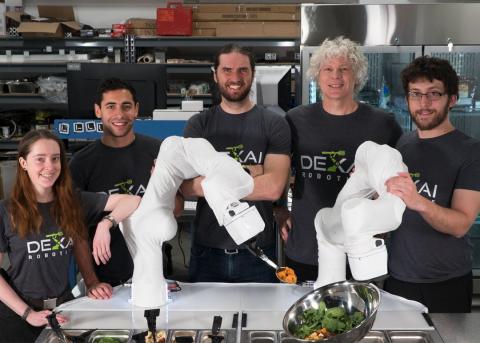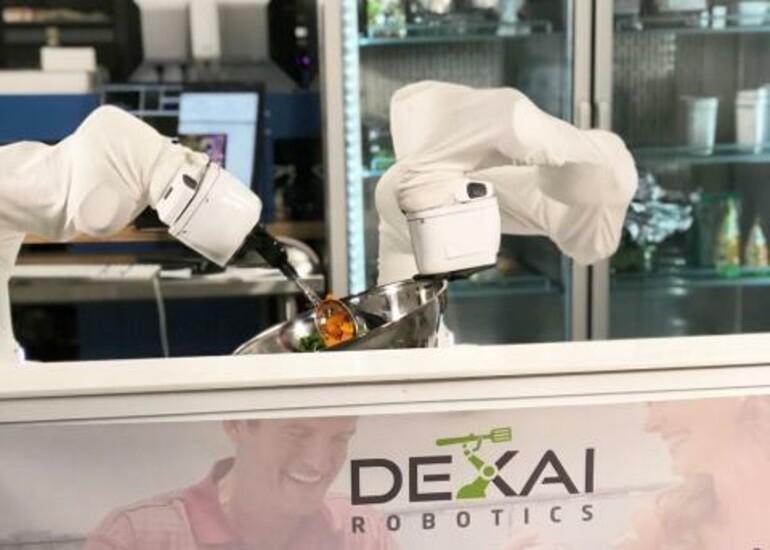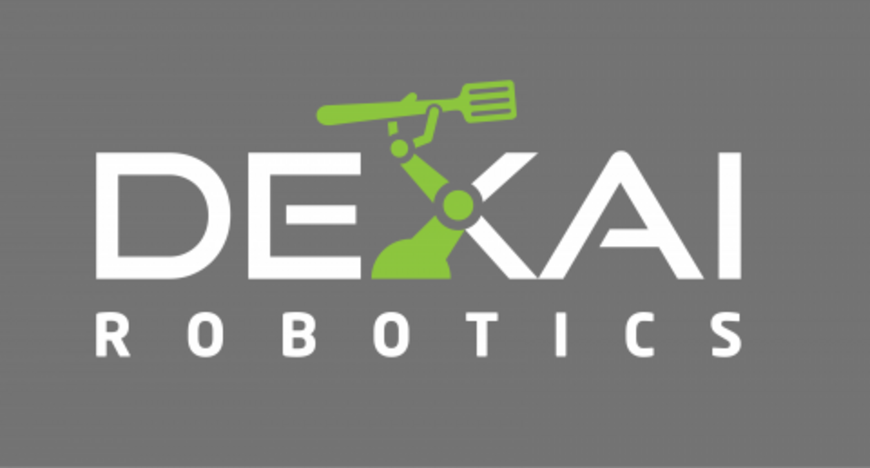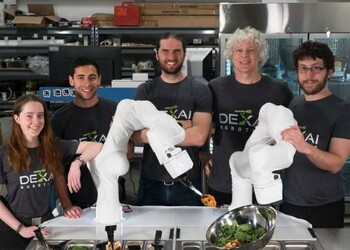Draper Spins Out Dexai Robotics
CAMBRIDGE, MA—Draper is extending its leadership in robotics and autonomous systems honed on projects for commercial and government customers with the spin-out of Dexai Robotics, a newly formed company that will build customized robots for industrial kitchens and restaurants. David M.S. Johnson, a robotic systems engineer who led development of the system at Draper, will serve as CEO. Dexai Robotics will use the capital investment from Draper to build out the team and accelerate product development and first customer ship.
Robot density worldwide is on the rise, with 74 robots currently at work for every 10,000 employees, a 20 percent jump since 2015. Restaurants and industrial kitchens, however, have been reluctant to invest in robotization of their operations. Meal preparation has long been a challenge for robots, especially those working in highly uncertain operational environments, where planning and executing tasks with high precision, repeatability and reliability isn’t easy.
“Robots are underemployed because they aren’t equipped to work in dynamic environments and alongside people,” said Kaigham J. Gabriel, president and CEO of Draper. “The Dexai Robotics team applied artificial intelligence, computer vision and model predictive control to remove many of the constraints in robotic systems. We are thrilled to spin out Dexai Robotics and bring advanced robotics into kitchens and restaurants.”
As an R&D innovator, Draper has a record of spinning off companies to allow new industries to emerge. Most recently, Draper spun out Dover Microsystems to serve commercial markets that need cyber resilient embedded processor chips for their products.
For industrial kitchens and restaurants that are working to make their operations more efficient and cost-effective, smart robotics can provide a solution to improve order throughput and order accuracy while reducing labor costs and optimizing space requirements. In developing the technology, Dexai Robotics’ aim is to provide kitchens with an autonomous system that can work without altering a customer’s layouts, processes or facilities, according to Johnson.
“Equipping a robot to make decisions and accomplish tasks in everyday environments, which have not been designed around the robot as they have in factories, has been an open challenge in the robotics community for quite some time,” Johnson said. “Dexai is introducing the first fully-automated and integrated intelligent food preparation robot that can be trained as a sous-chef and work as a collaborative robot or ‘cobot’ alongside humans to make food in kitchens. We call our robot Alfred.”
Dexai’s approach to autonomously operate in unstructured environments depends on the robot’s ability to map the location with respect to objects of interest, terrain and obstacles. This sensing and perception system uses a learned algorithm to recognize and classify each element in its environment based on how it relates to the current task.
Alfred can recognize and locate a large library of objects relevant to an everyday task—for example, scooping and serving ice cream or preparing a salad. Based on the objects’ locations and its knowledge of how to perform the task, the robot creates a detailed motion plan to accomplish each step of the task—its own custom set of instructions. These plans are adaptable to the environment and change in response to external events.
The prototype premiered to widespread acclaim at Hanover Messe, the international robotics show.
According to Gabriel, “Dexai Robotics is poised to change the common understanding of robotics and AI dramatically. We will no longer associate AI with futuristic robots and self-driving cars, but rather productivity tools and to help everyday tasks, like making a meal.”
Released March 21, 2019













